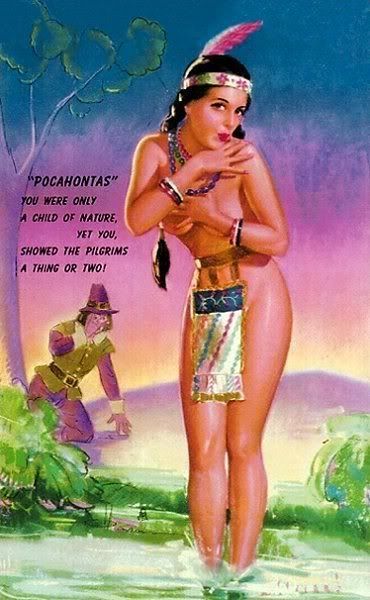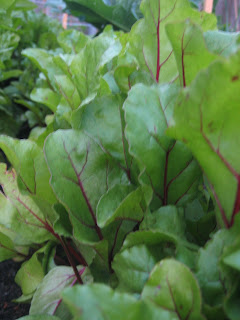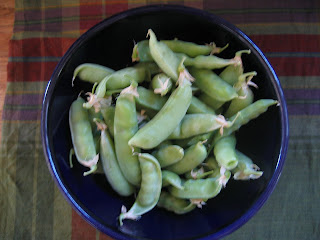I wait tables for a living.

Over the years, I've accumulated a whole basketfull of black aprons, rolled in cylinders and tied with their own strings.
When I unroll one before a shift, I fill the pockets with ballpoint pens, a soft-shelled order book I've been using for six years (in its pockets: snapshots of Ryan and Assata and my liquor and food handlers permits), and a stack of beer coasters. Used to throw in a wine-key too, but I mostly serve beers these days.
Also in my pocket: an associate's degree, a bachelor's degree, and a master's degree. (Yes, I keep the degrees in my metaphorical pocket). When customers get chatty and want to know what I went to college for, I tell them American Studies. I let them consider that for a moment, then deliver my punchline. "Which is why I'll be your waitress tonight."
They love that one.
I first put on an apron the summer I turned 19. Fresh from my first year at Evergreen State College, I showed up at Crater Lake National Park for a summer job in the gift shop a few hours after a server had quit in the dining room. That night, I was wearing my first apron and shadowing a server in the midst of a terrifying fine-dining dinner rush. I learned the ropes quickly enough and spent the summer as a Breakfast/Lunch server. I walked to work from the employee dorms at 5:30 every morning, along the rim of the volcanic crater as the sun rose over the 6-mile wide lake, a view I was lucky enough to enjoy all morning through the dining room windows. I spent my off-hours backpacking with dear friends, sitting around campfires, soaking in hotsprings, driving hours off-mountain to buy beer and swim in nearby lakes.
Weirdly enough, given that I'd always defined myself by my academic success, I began to take pride in my new identity: a Decent Waitress vagabond-type who was most at home in the mountains and on the road. I took it back to college that fall, and lived off the tips I'd made that summer for the academic year.

The following June, Crater Lake alum
Erin and I struck out for Mt. Rainier National Park, where fellow Paradise Lodge Dining Room servers quickly pigeonholed us as the "hippie waitresses." We did two summers slinging food on Mt. Tahoma (the proper name), began to shy away from the hippie label (it is ahistorical after all), embarked on a few wild early-20s adventures, and finished our respective BA degrees.
Eyeing the job market, we dug out our aprons again.
Erin waited her way from Eugene to Philly to the Oregon Coast. I schlepped my basket of aprons around the PNW, slinging Thai, Italian, and Mediterranean food. Eyed the GRE and a stack of graduate school applications uneasily for a few years, then finally dove in and scored a 2-year fellowship to study history at Utah State University.
As I neared the completion of my degree, I realized I'd had enough of academia, for the time being, and opted not to apply to PhD programs. I returned to the northwest, found a dear old house in a hilltop neighborhood with Ryan, who still had a year of graduate school in front of him, and pulled out my aprons again. Logged many hours as a cocktail waitress in a bar with some good beers and some good people and some wretched drunks. Made enough money to keep us above the water, help finance a month for us to backpack around Guatemala, and see us through the following summer. At which time: I gave notice without regrets, and we set out on a month-long road trip around the western states.
Returning to Seattle that fall, Ryan offered to support us financially for a year, so I could finish overhauling and expanding my master's thesis into a book-length manuscript. When money became too tight in the spring, I found a waitressing job in a matter of days, at a solid local establishment with good product, a conscientious business model, and a stellar crew. I walk to work; I clear 20 to 50 dollars an hour, depending on business, I have a highly flexible schedule, and plenty of time to write (if I practice some discipline).
I've met some of my dearest friends via "the business." One of them,
Chrysta, would eventually introduce me to Ryan. A vivacious and extraordinary clothing and fashion designer, she's been supporting her art with her aprons for years; while she's very close to putting the aprons away for good, as Erin has, she embodies a reality I've encountered time and again in the restaurant industry. Your server isn't "just a waiter"---there's an excellent chance he's an accomplished painter [
T.S. Pew!], a singular musician [
Michael! Ebon!], or she's a stunning photographer [Gretchen!], or writer or gifted journalist [Erin].
Sara waited her way into the Art Institute: now she's an associate at a successful Seattle design firm. Your server may well be a mom supporting her children, or a traveler who's served food in 6 countries and 22 states who'd just as soon see the sun set over a new landscape a few times a year.
Servers witness moments most people miss. 5 years ago, I walked up to a table set for two where a single, middle-aged woman was sitting. There was an envelope on both plates, and a bouquet wrapped in paper in the center of the table. "Is it a special night?" I asked. "Yes," she replied, "its my anniversary." I asked her if I could bring her a glass of wine while she waited for her husband to arrive. She told me she would take the wine, but that he wouldn't be coming; he'd died the week before, and she was honoring the reservation they had made. I had to leave the dining room to cry. I remember every detail. The almost undetectable quiver in her voice. The two glasses of Ravenswood Red Zinfandel. The corner table she sat at, facing the door. The Blackened Salmon Caeser. I told the chef her story, and he comped her meal. When I told her there was no bill, she clasped my hands in hers, with tears in her eyes, and said "God Bless you." She couldn't have been more than 45. They had two daughters, she told me.
One woman took an interest in my background as I waited on her that year, and when I told her quietly I was quitting soon to go back to school, she tucked a fifty into my hand. When I cleared the table, there was a note scrawled on a napkin. "enjoy your new life."
I've reached through raw, painful marital disputes to refill water glasses, and seen parents smack and shake their children when they thought no one was looking. I overheard a tiny woman wearing too many diamonds tell her friends that her husband upped her allowance five thousand dollars that month, since she'd dropped her weight to 115 pounds. I've watched teenage girls excuse themselves to the bathroom for longer than necessary and return to the table furtively wiping their mouths. I've scanned the faces of their parents for some sign of concern, and found none. I've heard rednecks joke about someone killing Obama while clearing their plates, and been groped by business-types while my hands were full of empty glassware.
I've walked home after a 5 hour shift with enough cash for the carpayment, wrangled weeks off in mere moments, and served hundreds of birthday desserts and thousands of really lovely meals.
Its a mixed bag. And while I am striving to create a career for myself based on writing, rather than serving, I do not regret a moment of my ongoing overeducated waitressing career.
Last winter, an exceptional journalist named Kathy Helms passed along a gem that someone passed on to her years ago.
"All good comes to them that waitress" I've tucked it into that metaphorical pocket along with those college degrees.
So much good has already come my way, and the horizon is filled with unfolding stories.
 As we were gathering our things to head home the day after Thanksgiving, my mother handed us a small ceramic pot with a narrow green shoot.
As we were gathering our things to head home the day after Thanksgiving, my mother handed us a small ceramic pot with a narrow green shoot.






























